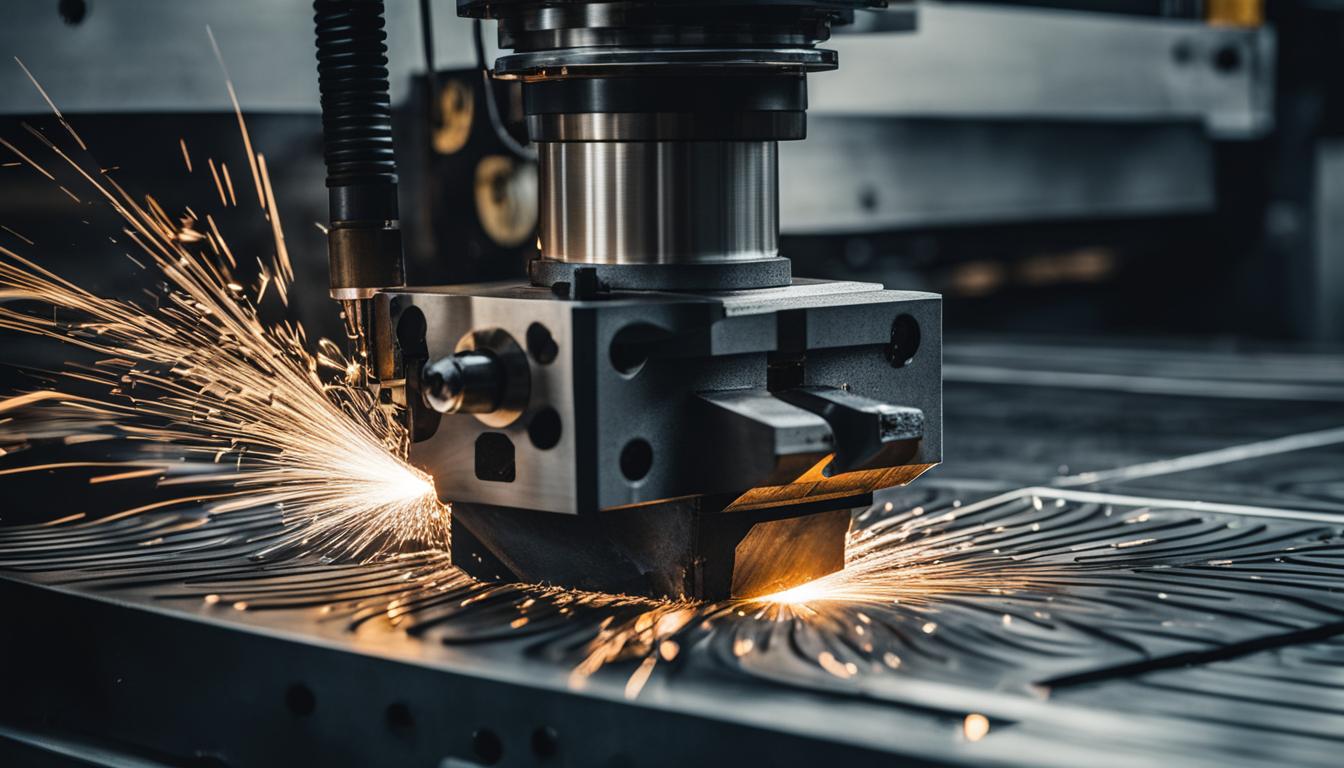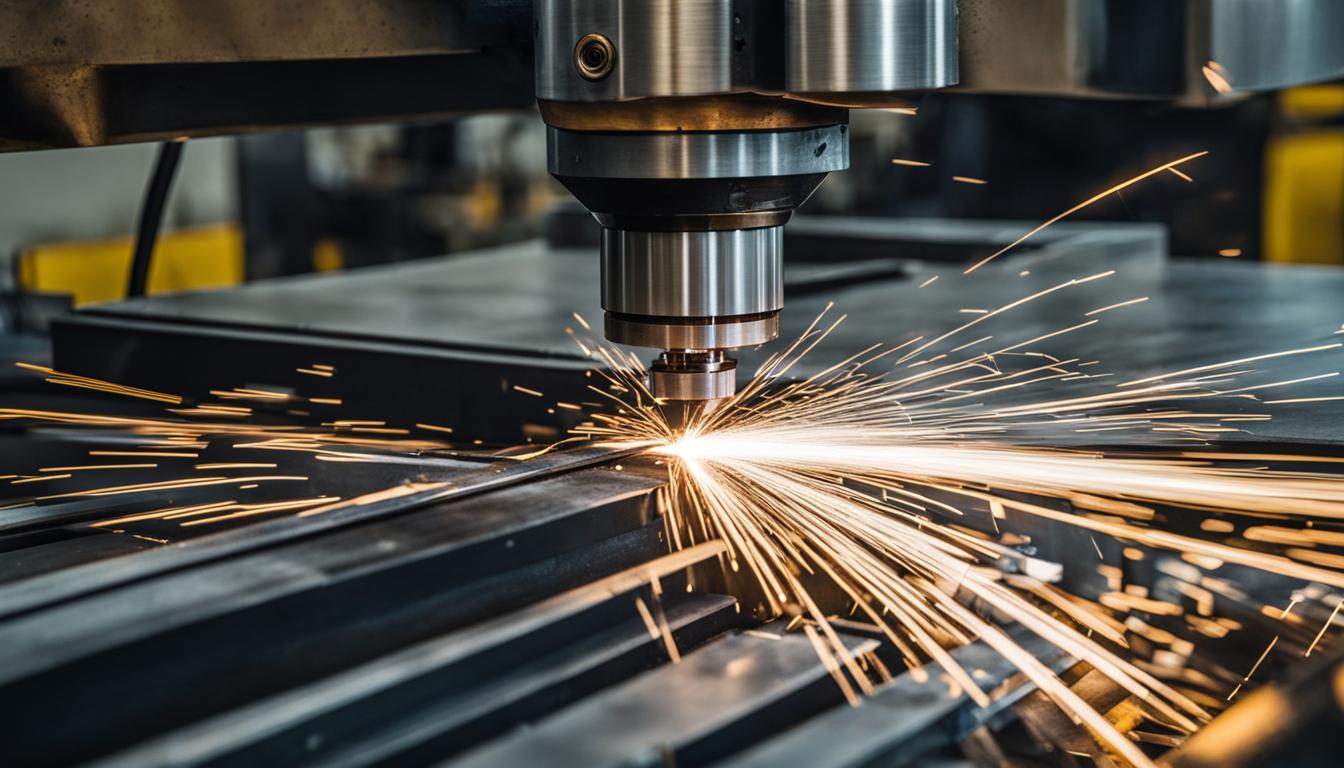CNC routers can indeed cut steel, but their capabilities depend on several factors including the machine’s power, rigidity, and the specific type of steel being cut. Most standard CNC routers are designed for softer materials like wood, plastics, and aluminum, making them less suitable for cutting harder metals like steel. However, industrial-grade CNC routers with higher horsepower, robust construction, and specialized cutting tools can effectively machine steel.
These machines typically use carbide or diamond-tipped end mills and require slower feed rates and higher spindle speeds compared to cutting softer materials. The thickness and hardness of the steel also play crucial roles in determining the feasibility of the cut. Thin sheet steel or mild steel are more manageable for CNC routers, while thicker or harder steel alloys may require more specialized metal-cutting machines like CNC mills or plasma cutters.
When cutting steel with a CNC router, proper cooling and lubrication are essential to prevent tool wear and ensure a clean, precise cut. While it’s possible to use CNC routers for steel cutting, it’s important to consider the machine’s limitations and the specific requirements of the project to achieve optimal results.
- CNC routers can be used for steel cutting with the correct setup and adjustments.
- The steel cutting capabilities of CNC routers depend on factors such as spindle power and speed control.
- CNC routers are commonly used to produce steel parts for industrial machinery, door and window components, lighting fixtures, signage, and more.
- Cutting steel with CNC routers requires careful adjustments of router settings to manage the heat generated during the cutting process.
- While CNC routers can cut steel, CNC mills are better suited for heavy-duty cutting of materials like steel, aluminum, and titanium.
CNC Router Materials and Applications
CNC routers are versatile machines that can work with a wide variety of materials, offering a range of applications in various industries. In addition to steel, CNC routers are capable of carving and cutting materials such as:
- Wood
- Composite laminates
- Plexiglass/acrylic
- Polymer foam
- Soft and hard plastics
- Ceramic
- Stone
Each material requires specific router settings and cutting techniques for optimal results. For instance, when working with composite laminates, it’s essential to employ preventive measures to avoid delamination. On the other hand, cutting plexiglass and acrylic can be efficiently done due to the CNC router’s depth capacity.
With their versatility, CNC routers find applications in a range of industries. Some common applications include:
- Architectural millwork
- Cabinet making
- Sign making
- Metal fabrication
- Plastic fabrication
- And more
These machines offer precision and accuracy, making them suitable for various projects that require intricate designs and intricate cuts. Whether it’s cutting steel for industrial machinery or creating detailed patterns on wooden surfaces, CNC routers provide reliable performance and consistent results.
| Material | Applications |
|---|---|
| Wood | Furniture manufacturing, cabinetry, woodworking |
| Composite laminates | Aerospace components, marine industry, automotive parts |
| Plexiglass/acrylic | Signage, display fixtures, architectural models |
| Polymer foam | Prototyping, packaging materials, foam inserts |
| Soft and hard plastics | Plastic fabrication, custom parts manufacturing |
| Ceramic | Tile production, decorative pieces |
| Stone | Engraving, monument making, countertops |
Advantages of Using CNC Routers for Steel Cutting
When it comes to steel cutting, CNC routers offer several advantages that make them a preferred choice for many manufacturers. Here are some of the key benefits:
- Versatility: CNC routers are incredibly versatile machines capable of handling a wide range of materials, including steel. This flexibility allows manufacturers to use a single machine for multiple applications, reducing the need for additional equipment.
- Efficiency: CNC routers are designed to optimize production efficiency. With advanced automation capabilities, these machines can perform complex cutting operations quickly and accurately, saving time and labor costs.
- Precision: Precision is essential when it comes to steel cutting, and CNC routers excel in this area. These machines can achieve high levels of accuracy, ensuring clean and precise cuts on steel materials.
- Cost Savings: By using a CNC router for steel cutting, manufacturers can reduce material waste and minimize errors, resulting in significant cost savings. Additionally, the automation capabilities of CNC routers eliminate the need for manual labor, further reducing expenses.
- Customization: CNC routers offer immense flexibility in terms of design and customization. They can easily accommodate complex shapes and intricate designs, allowing manufacturers to create unique steel products tailored to their specific requirements.
- Scalability: CNC routers are scalable machines that can handle both small-scale and large-scale production. Whether you need a few steel components or a high volume of parts, CNC routers can adapt to your production demands.
With these advantages, it’s clear why CNC routers have become an indispensable tool for steel cutting in various industries.
The image below demonstrates the precision and versatility of CNC routers in steel cutting

| Advantage | Description |
|---|---|
| Versatility | CNC routers can handle a wide range of materials, including steel, making them versatile machines capable of handling multiple applications. |
| Efficiency | CNC routers optimize production efficiency with advanced automation capabilities, allowing for complex cutting operations to be performed quickly and accurately. |
| Precision | CNC routers excel in achieving high levels of accuracy, ensuring clean and precise cuts on steel materials. |
| Cost Savings | CNC routers reduce material waste and minimize errors, resulting in significant cost savings. Automation capabilities eliminate the need for manual labor. |
| Customization | CNC routers offer immense flexibility in design and customization, accommodating complex shapes and intricate designs for unique steel products. |
| Scalability | CNC routers can handle both small-scale and large-scale production, making them adaptable to varying production demands. |
CNC Router Technology for Steel Cutting
When it comes to choosing a CNC router for steel cutting, there are several factors to consider. The right machine with advanced technology and capabilities can make a significant difference in achieving precise and clean cuts on steel materials. Here, we will explore the top CNC routers for steel cutting, discussing their key features and benefits.
Factors to Consider
When selecting a CNC router for steel cutting, the following factors should be taken into account:
- Machine Power: Look for a router with sufficient power to handle steel materials. Higher power allows for faster and more efficient cutting.
- Spindle Speed: Consider a router with adjustable spindle speed control for optimal cutting performance on steel materials. Higher spindle speed enables smoother cuts and improved efficiency.
- Rigidity: Opt for a CNC router with a rigid frame and construction to reduce vibrations and ensure stability during the cutting process. This helps in achieving accurate and precise cuts.
CNC Router vs. CNC Mill for Steel Cutting
When it comes to steel cutting, it’s important to choose the right CNC machine for the job. While CNC routers can handle steel cutting, CNC mills are better suited for heavy-duty applications involving materials like steel, aluminum, and titanium. The higher torque and precision offered by CNC mills make them ideal for industrial-grade materials.
CNC mills excel at achieving intricate cuts and tight tolerances, which is crucial for precision steel cutting. With their robust construction and advanced technology, these machines can handle demanding tasks and deliver exceptional results. On the other hand, CNC routers are faster and more efficient for softer materials, but they may lack the power and precision required for steel cutting.
The choice between a CNC router and a CNC mill ultimately depends on the specific needs of the project and the desired level of precision and cutting capabilities. If you’re working with steel, aluminum, or titanium and require intricate cuts or tight tolerances, a CNC mill is the recommended choice. However, if you’re primarily focused on softer materials and looking for speed and efficiency, a CNC router may be more suitable.
